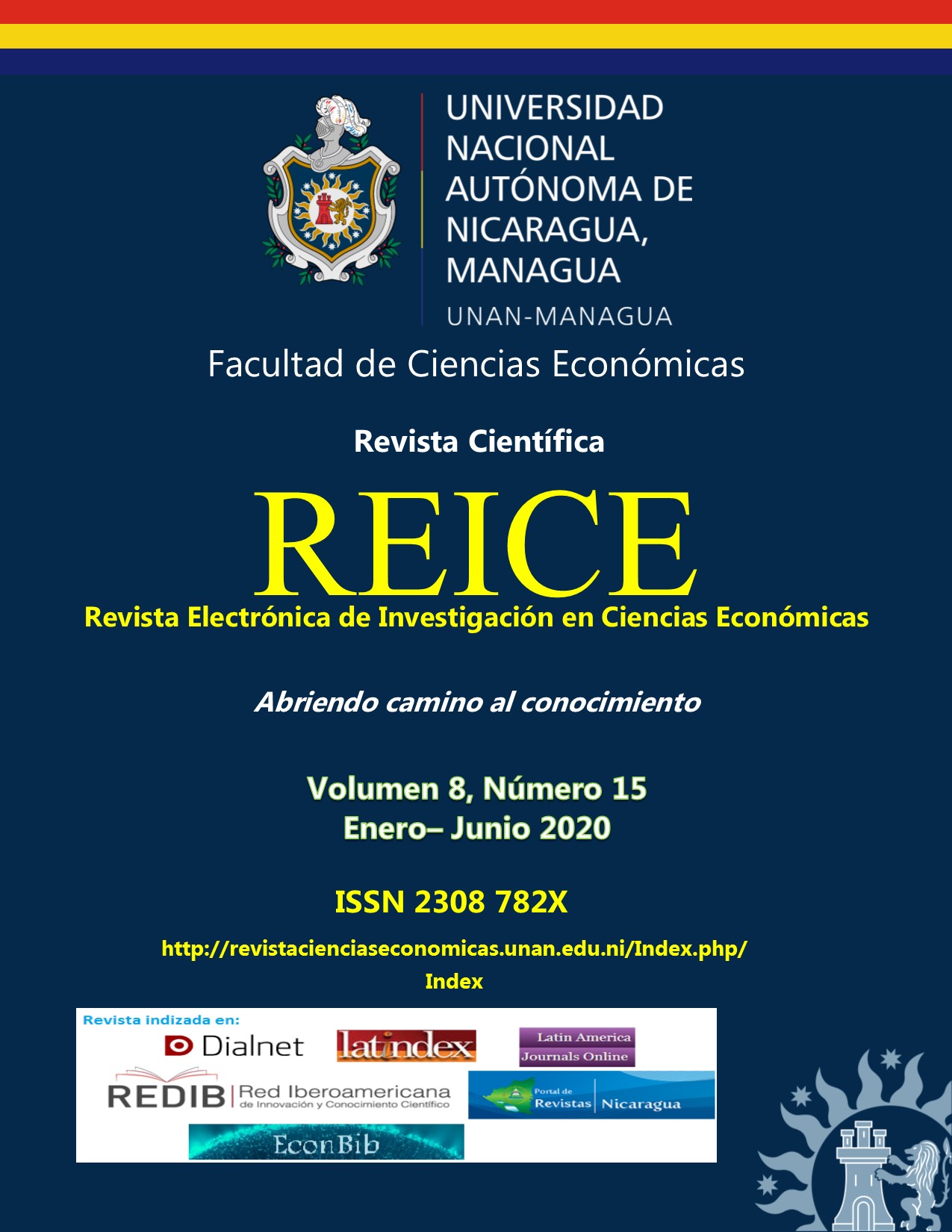Corporate Enterprise: The Excellence Plan Of Aguas De Cartagena S.A. E.S.P. “Acuacar”
DOI:
https://doi.org/10.5377/reice.v8i15.9938Keywords:
innovation management, organizational climateAbstract
The research describes the derivations of innovation management in the organizational climate through the Excellence Plan of Aguas de Cartagena S.A. E.S.P. - Acuacar, a weekly group space for generating ideas that, without judging their relevance, avoids restricting their free application. This organizational development guideline encourages employee participation; energizes the cooperation and active contribution of all employees; It generates opportunities for improvement, consolidating a strong and apprehensive culture of excellence and dynamic involvement in the company, and ultimately the optimization of processes. The literature review allowed establishing the following hypothesis: innovation management improves the organizational climate. The analysis was carried out from a mixed paradigm supported mainly in the documentary analysis and later in the technique of analysis of the variance based on the data collected in deference to the instruments used. It was found that the Excellence Plan is a space for creativity, innovation and co-creation of knowledge, in short, a successful case of corporate entrepreneurship. Under this background and as a main conclusion, the thesis that innovation management positively influences the organizational climate of ACUACAR is corroborated.
Downloads
597
References
Bronkhorst, B., Tummers, L., Steijn, B. y Vijverberg, D. (2015). Organizational climate and employee mental health outcomes: A systematic review of studies in health care organizations. Health Care Management Review, 40(3), 254–271.
Cornell, F. (1955). Socially perceptive administration. El Phi Delta Kappan, 36(6), 219–223.
De La Cruz, E. y Huaman Ruíz, Á. A. (2016). Clima organizacional y desempeño laboral en el personal del programa nacional cuna más en la provincia de Huancavelica. Universidad Nacional de Huancavelica.
Forrellat-Barrios, M. (2014). Calidad en los servicios de salud: un reto ineludible. Revista Cubana Hematología, Inmunología y Hemoterapia, 30(2), 179–183.
García-Solarte, M. (2009). Clima organizacional y su diagnóstico: Una aproximación conceptual. Cuadernos de Administración, (42), 43–61.
Gibson, J. L., Donnelly, J. H. y Ivancevich, J. M. (1991). Organizations: behaviour, structure, processes. México. D. F.: Alfaomega.
Githinji, N. y Gachunga, H. (2017). Influence of organizational climate on employee performance in state corpo- rations in Kenya: A case of Kenya Industrial Estates limited. The Strategic Journal of Business & Change Management, 4(2), 376–395.
Hall, R., & Deras Quiñones, A. (1996). Organizaciones: Estructura, Procesos y Resultados (Prentice-H). México. D. F.: Alfaomega.
Hernández-Nieto, R.A. (2011). Instrumentos de recolección de datos en ciencias sociales y ciencias biomédicas. Mérida, Venezuela: Universidad de Los Andes. Recuperado de https://www.amazon.com/INSTRUMENTOS-RECOLECCION-Spanish-Rafael-Hernandez-Nieto-ebook/dp/B007TB4BEE ASIN: B007TB4BEE.
Iglesias-Armenteros, A. L. y Sánchez García, Z. T. (2015). Generalidades del clima organizacional. Medisur, 13(3), 455–457.
Palacios, A. (1998). Diagnóstico organizativo. Mexico D.F.: Análisis de los modelos metodológicos (Editorial).
Méndez, C. E. (2006). Clima Organizacional en Colombia El IMCOC: un método de análisis para su intervensión. Bogotá: Centro editorial Universidad del Rosario (Vol. 4).
Mendoza-Betin, J. (2019). Innovación de procesos: estudio práctico de Aguas de Cartagena S.A. E.S.P. “ACUACAR”. Desarrollo Gerencial, 11(2), 1-20. DOI: https://doi.org/10.17081/dege.11.2.3477.
Rodríguez, D. (2001). Diagnóstico Organizacional. México. D. F.: Alfaomega.
Santana Del Salto, M. C. (2018). Comportamiento organizacional para el manejo de conflictos laborales en Instituciones de Salud Pública en la ciudad de Ambato. Tesis de posgrado. Universidad Técnica de Ambato, Ambato.
Seisdedos, N. (1996). El clima laboral y su medida. Psicología Del Trabajo y de Las Organizaciones, (2). México. D. F.: Alfaomega.
Suez (2020). Grupo Suez. www.suez.com
Downloads
Published
How to Cite
Issue
Section
License
Copyright (c) Revista Electronica de Investigacion en Ciencias Economicas
The rights to the articles published in REICE are from the journal, in order to be able to manage their best dissemination. However, since the purpose of the same is the dissemination of knowledge, this journal provides immediate free access to its content, under the principle that making research available to the public free of charge, which fosters a greater exchange of global knowledge.
The opinions expressed by the authors do not necessarily reflect the position of the publisher of the publication or of the UNAN-Managua. Its reproduction and distribution is authorized (in any type of support) provided that the following indications are fulfilled:
- The authorship of the work
- Indicate its origin (REICE magazine, volume, number and electronic address of the document)

